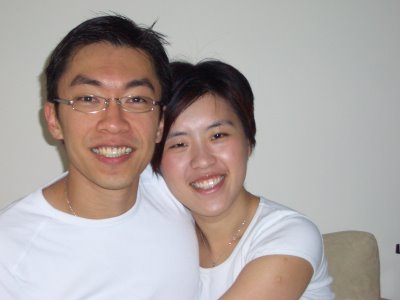Elite bashing has reached fever pitch in Singaporean blogosphere. There are nasty blogs, pictures, cartoon, and even a mean animation of the 18 year old girl caught in the middle of all this. Singaporean bloggers are falling over each other in the who can be more creatively mean stake.
Those who mock Miss Wee so vindictively for lack of empathy fail to see that their behaviour towards - may I say again - an 18 year old teenager reeks of hypocrisy. We all said rude or stupid things when we were 18. Where is the empathy here? Elitism may be a real issue in Singapore, but what sense is there in bashing an 18 year old?
I tried hard to make sense of all these and came to the conclusion that people were merely using Miss Wee as an excuse to vent. In one single person, Singaporeans have found the perfect target to unleash all their grievances (perceived or real) against the elite of Singapore. The issue of elitism was never properly discussed in any of these blogs, which were dishing out what I can only described as mob justice. But the issue concerning elitism in Singapore is real, here are some of my observations and thoughts.
The elite are to blame for globalisation
Globalisation is a difficult process. The increased competition and job insecurity is all so real for so many Singaporeans. But those who somehow blame the elite, particularly the Government elite for failing to protect them from competition, are completely mistaken.
In every society, an elite class inevitably emerges, even in communist countries. But would we Singaporeans rather shut ourselves from globalisation and see an oligarchic, rent seeking elite emerge in a static economy? The force of globalisation, and the competition it unleashes, is the best restrain on local elite. Nothing destroys economic rents like competition does. We need only compare the finance and law sectors. One is liberalised, with intense competition between local and foreign players, and increased opportunities for all and benefits for the consumers. The other is still dominated by the same few big local firms, collectively exercising monosony power in the market.
If you want to break up the cozy elitism in Singapore, embrace globalisation, not reject it. A new elite will of course emerge, but it will be one more creative, competitive and ultimately constrained by the very forces that create them.
Elite schools are bad
I also detect an angst against elite school. The fact that Miss Wee is a humanities scholar from a top college in Singapore lends to the impression that elite schools are a problem in breeding uncaring, elitist attitudes.
It is natural that many students from good schools go on to form the elite in the country. But RJC is not Eaton. There is a big difference between an elite school and a school for the elite (or their children). In the UK, there are private schools for the elite costing more than ten thousand pounds per school year.
I know of no school in Singapore costing anywhere near the amount. Even independent schools are not entirely devolved from the state. As long as admission to an elite school is down to results, it would be a cause for celebration if we have more of them.
Civil Service is elite
It is disturbing also to hear the frequency which the word elite is used with civil servants. I am assuming that people who link the two are in fact referring to scholars in civil service rather than civil servants in general. Bashing Government leaders is of high risk in Singapore. The alternative? Take out the civil servants who every one loves to hate. Everyone can appreciate a joke against the stone face, bumbling civil servant. But this is again completely wrong. Unhappiness with Government policies should not be taken out on civil servants.
Furthermore, public organisations - taken broadly to include the civil service, armed forces, statutory boards, and GLCs - must have given hundreds of scholarships each year. Cumulatively, there must be thousands of past and present scholars in Singapore. By this measure, the elite in Singapore must be rather big and pretty inclusive indeed. Scholarships is also a damned good social leveller, judging by the disproportionate number of taxi drivers' children who are awarded with scholarships.
When you have an elite that is so numerous, it is more blase than special.
Definition of elite expanding
Finally, the power of competition unleashed by the internet is creating a new class of elite. Mr Brown, Singapore's most famous blogger, can be considered an elite by this measure. Everyone in Singapore knows him, has heard from him, and has seen what he wrote. When I last looked up my alma matar The Chinese High School on Wikipedia, Mr Brown was listed as one of the famous alumni of the school alongside late President Ong Teng Cheong and the Chief Justice of China!
Seen from this perspective, the recent hazing of Miss Wee by the blogging luminaries in Singapore is nothing but a elite versus elite contest. Though the new elite disguise themselves as non-elite underdogs, their public influence is increasingly clear for all to see. They are clearly articulate, can definitely write well, but somehow always employ exaggerated Singlish to highlight their non-eliteness, condescending perhaps?
These new opinion shapers are taking on the established elite, and often winning in terms of leading public opinion though not necessarily the arguments. Which websites do you think are more popular? Political parties (I mentioned political parties to disabuse anyone of the notion that I might be referring to PAP only) or Mr Brown / Talkingcock.com? This of course brings me back to my original point, nothing breaks up the elite structure like competition. We should embrace it.

